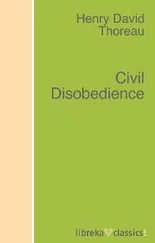shelf, though it frequently happens that after the lapse of a season
the latter becomes the most fashionable. Comparatively, tattooing is
not the hideous custom which it is called. It is not barbarous merely
because the printing is skin-deep and unalterable.
I cannot believe that our factory system is the best mode by which men
may get clothing. The condition of the operatives is becoming every day
more like that of the English; and it cannot be wondered at, since, as
far as I have heard or observed, the principal object is, not that
mankind may be well and honestly clad, but, unquestionably, that
corporations may be enriched. In the long run men hit only what they
aim at. Therefore, though they should fail immediately, they had better
aim at something high.
As for a Shelter
, I will not deny that this is now a necessary of life,
though there are instances of men having done without it for long
periods in colder countries than this. Samuel Laing says that “the
Laplander in his skin dress, and in a skin bag which he puts over his
head and shoulders, will sleep night after night on the snow—in a
degree of cold which would extinguish the life of one exposed to it in
any woollen clothing.” He had seen them asleep thus. Yet he adds, “They
are not hardier than other people.” But, probably, man did not live
long on the earth without discovering the convenience which there is in
a house, the domestic comforts, which phrase may have originally
signified the satisfactions of the house more than of the family;
though these must be extremely partial and occasional in those climates
where the house is associated in our thoughts with winter or the rainy
season chiefly, and two thirds of the year, except for a parasol, is
unnecessary. In our climate, in the summer, it was formerly almost
solely a covering at night. In the Indian gazettes a wigwam was the
symbol of a day’s march, and a row of them cut or painted on the bark
of a tree signified that so many times they had camped. Man was not
made so large limbed and robust but that he must seek to narrow his
world, and wall in a space such as fitted him. He was at first bare and
out of doors; but though this was pleasant enough in serene and warm
weather, by daylight, the rainy season and the winter, to say nothing
of the torrid sun, would perhaps have nipped his race in the bud if he
had not made haste to clothe himself with the shelter of a house. Adam
and Eve, according to the fable, wore the bower before other clothes.
Man wanted a home, a place of warmth, or comfort, first of physical
warmth, then the warmth of the affections.
We may imagine a time when, in the infancy of the human race, some
enterprising mortal crept into a hollow in a rock for shelter. Every
child begins the world again, to some extent, and loves to stay out
doors, even in wet and cold. It plays house, as well as horse, having
an instinct for it. Who does not remember the interest with which when
young he looked at shelving rocks, or any approach to a cave? It was
the natural yearning of that portion of our most primitive ancestor
which still survived in us. From the cave we have advanced to roofs of
palm leaves, of bark and boughs, of linen woven and stretched, of grass
and straw, of boards and shingles, of stones and tiles. At last, we
know not what it is to live in the open air, and our lives are domestic
in more senses than we think. From the hearth to the field is a great
distance. It would be well perhaps if we were to spend more of our days
and nights without any obstruction between us and the celestial bodies,
if the poet did not speak so much from under a roof, or the saint dwell
there so long. Birds do not sing in caves, nor do doves cherish their
innocence in dovecots.
However, if one designs to construct a dwelling house, it behooves him
to exercise a little Yankee shrewdness, lest after all he find himself
in a workhouse, a labyrinth without a clue, a museum, an almshouse, a
prison, or a splendid mausoleum instead. Consider first how slight a
shelter is absolutely necessary. I have seen Penobscot Indians, in this
town, living in tents of thin cotton cloth, while the snow was nearly a
foot deep around them, and I thought that they would be glad to have it
deeper to keep out the wind. Formerly, when how to get my living
honestly, with freedom left for my proper pursuits, was a question
which vexed me even more than it does now, for unfortunately I am
become somewhat callous, I used to see a large box by the railroad, six
feet long by three wide, in which the laborers locked up their tools at
night, and it suggested to me that every man who was hard pushed might
get such a one for a dollar, and, having bored a few auger holes in it,
to admit the air at least, get into it when it rained and at night, and
hook down the lid, and so have freedom in his love, and in his soul be
free. This did not appear the worst, nor by any means a despicable
alternative. You could sit up as late as you pleased, and, whenever you
got up, go abroad without any landlord or house-lord dogging you for
rent. Many a man is harassed to death to pay the rent of a larger and
more luxurious box who would not have frozen to death in such a box as
this. I am far from jesting. Economy is a subject which admits of being
treated with levity, but it cannot so be disposed of. A comfortable
house for a rude and hardy race, that lived mostly out of doors, was
once made here almost entirely of such materials as Nature furnished
ready to their hands. Gookin, who was superintendent of the Indians
subject to the Massachusetts Colony, writing in 1674, says, “The best
of their houses are covered very neatly, tight and warm, with barks of
trees, slipped from their bodies at those seasons when the sap is up,
and made into great flakes, with pressure of weighty timber, when they
are green.... The meaner sort are covered with mats which they make of
a kind of bulrush, and are also indifferently tight and warm, but not
so good as the former.... Some I have seen, sixty or a hundred feet
long and thirty feet broad.... I have often lodged in their wigwams,
and found them as warm as the best English houses.” He adds, that they
were commonly carpeted and lined within with well-wrought embroidered
mats, and were furnished with various utensils. The Indians had
advanced so far as to regulate the effect of the wind by a mat
suspended over the hole in the roof and moved by a string. Such a lodge
was in the first instance constructed in a day or two at most, and
taken down and put up in a few hours; and every family owned one, or
its apartment in one.
In the savage state every family owns a shelter as good as the best,
and sufficient for its coarser and simpler wants; but I think that I
speak within bounds when I say that, though the birds of the air have
their nests, and the foxes their holes, and the savages their wigwams,
in modern civilized society not more than one half the families own a
shelter. In the large towns and cities, where civilization especially
prevails, the number of those who own a shelter is a very small
fraction of the whole. The rest pay an annual tax for this outside
garment of all, become indispensable summer and winter, which would buy
a village of Indian wigwams, but now helps to keep them poor as long as
Читать дальше












